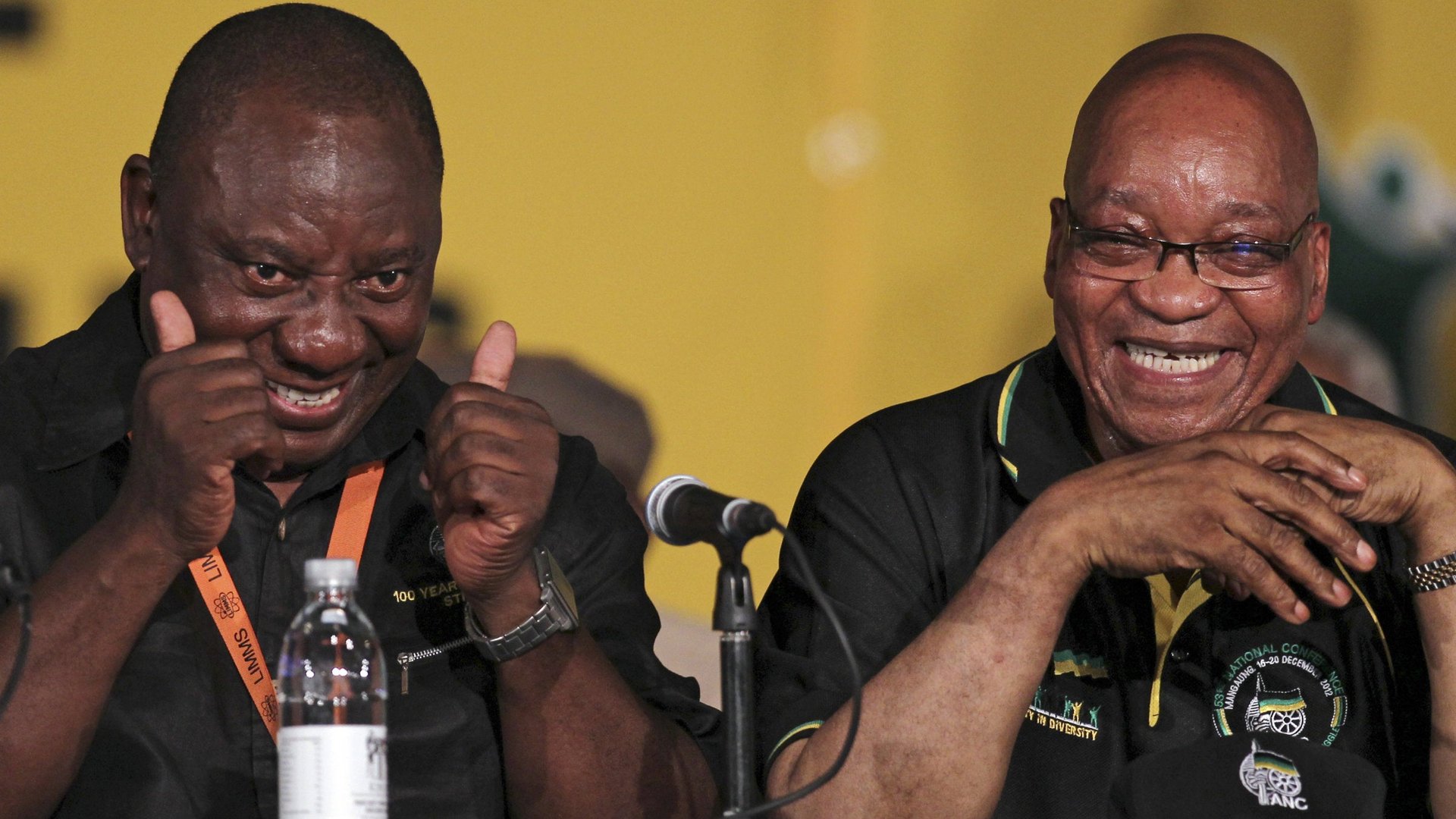A union organizer-turned-businessman returns to South African politics. Which side will he choose now?
He’s back.


He’s back.
The most interesting development of African National Congress elections has been the re-entry of Cyril Ramaphosa to active politics. Ramaphosa was overwhelmingly elected to the ANC deputy presidency as the elective conference meets in Bloemfontein this week. As expected, South African President Jacob Zuma won a resounding victory to head the congress, which is the country’s governing political party.
Ramaphosa, the unionist turned capitalist, is defined by starkly contradictory career trajectories. He is an anti-apartheid stalwart, who built up and led the country’s most formidable union as the general secretary of the National Union of Mineworkers and was one of the chief negotiators who helped the country transition into a new South Africa. The once fervent unionist is now one of the country’s richest businessmen with a net worth of $675 million, according to Forbes. Ramaphosa started amassing his wealth by being one of the first to benefit from the ruling party’s black economic empowerment policies. As founder and chairman of the Shanduka Group, a management investment holding company founded in 2000, he has interests in a variety of industries, including mining, banking, property and food, with investments in even Coca-Cola and McDonald’s.
Though he has seemed to hold no interests in active politics (he holds important positions in other ANC key bodies) Ramaphosa has still been held up on a political pedestal, with many calling for him throughout the years to run for president. And the apparent ease with which he seems to have slipped back into such a prominent position might suggest that he is still seen as the future of the governing party’s leadership.
Others like editor Ferial Haffajee of the weekly City Press say this “obsession with Cyril Ramaphosa” is misplaced. “The reason that Ramaphosa is so valorized is because of his past and not anything he has done recently,” she wrote. What he has done recently, in fact, has shown up the wide gap between his past political convictions and his realities as a businessman. The former unionist, who is also director at the Marikana mine that made international news headlines recently when 34 men were shot down by police in August, was criticized when he was revealed to stand against the men who were striking for a better wage. And earlier in the year he was lambasted for bidding for a cow and its calf at a price close to R20 million, a move for which he apologized and recognized “as an excessive price in the sea of poverty.”
In the decade-plus he has been out of the political limelight, Ramaphosa has been notoriously quiet about his political ambitions. And it’s early yet to tell whether he will be any more vocal in comparison to his predecessor Kgalema Motlanthe, often accused of standing on the sidelines.
But others see the potential of Ramaphosa’s business might to woe back the hearts of the black middle class that seem to be drifting from its liberation movement. “Mr. Ramaphosa can also speak to the business constituency in the ANC…Business organizations will be hoping he will take their message back to other ANC delegates,” writes Stephen Grootes in his analysis of the impact of the newly elected ANC leadership.
Time will tell how he brings his two worlds together. For a start, there have already been reports that Ramaphosa will be reviewing his business interests so there are no conflicts of interest between his businesses and his politics. Indeed, whatever he does in the next few years to court the buy-in of the rest of the public, many are already watching.